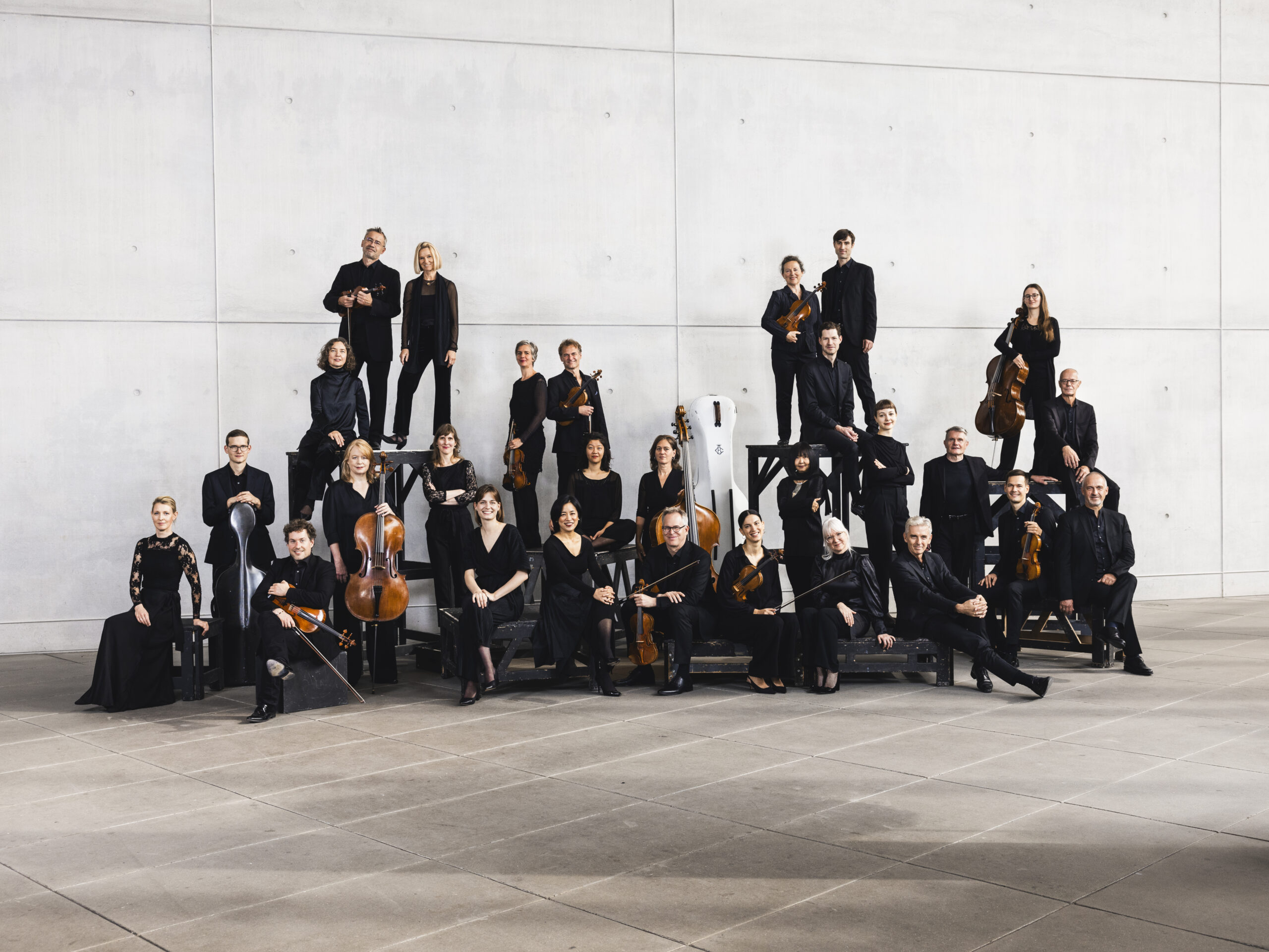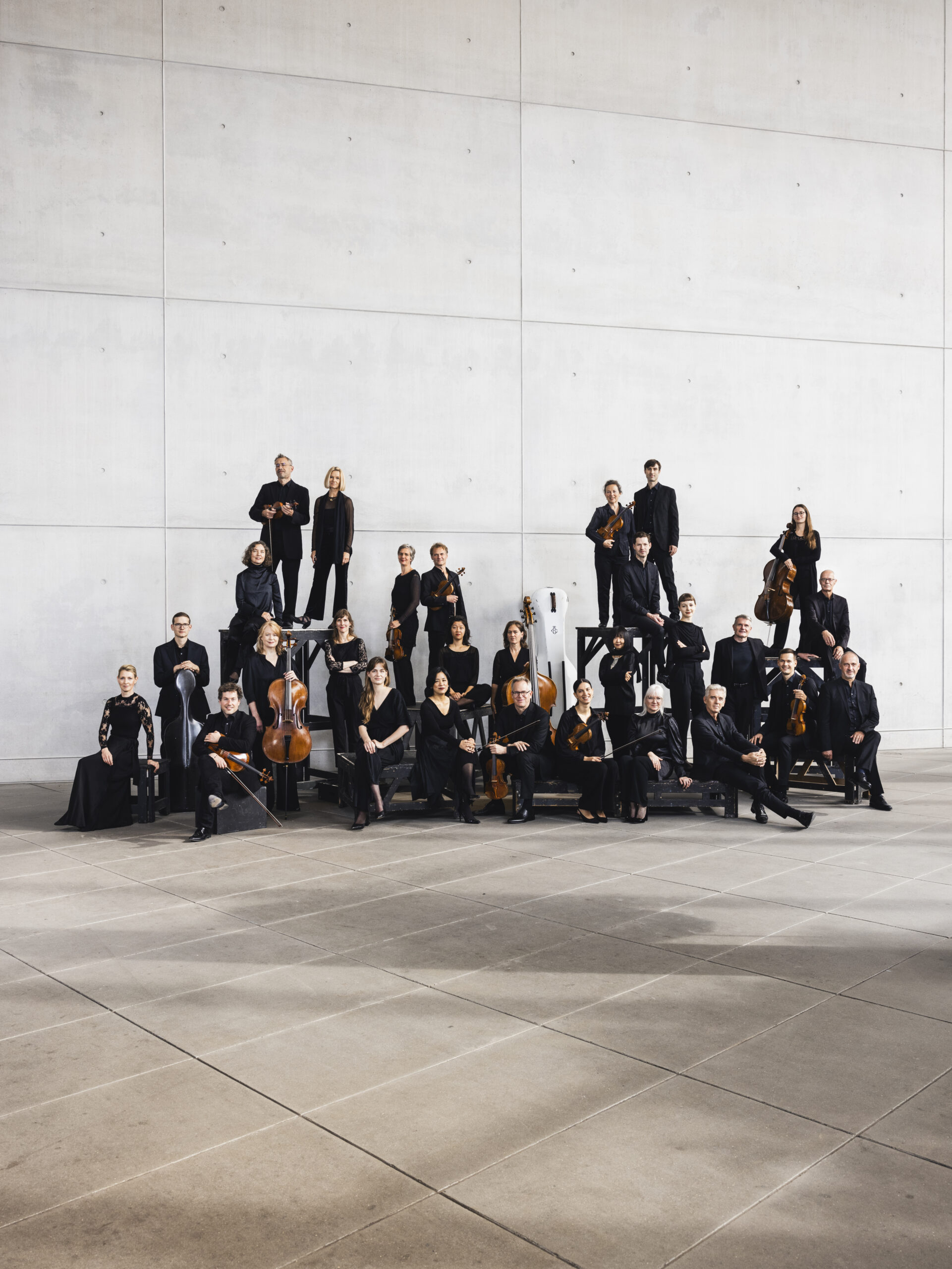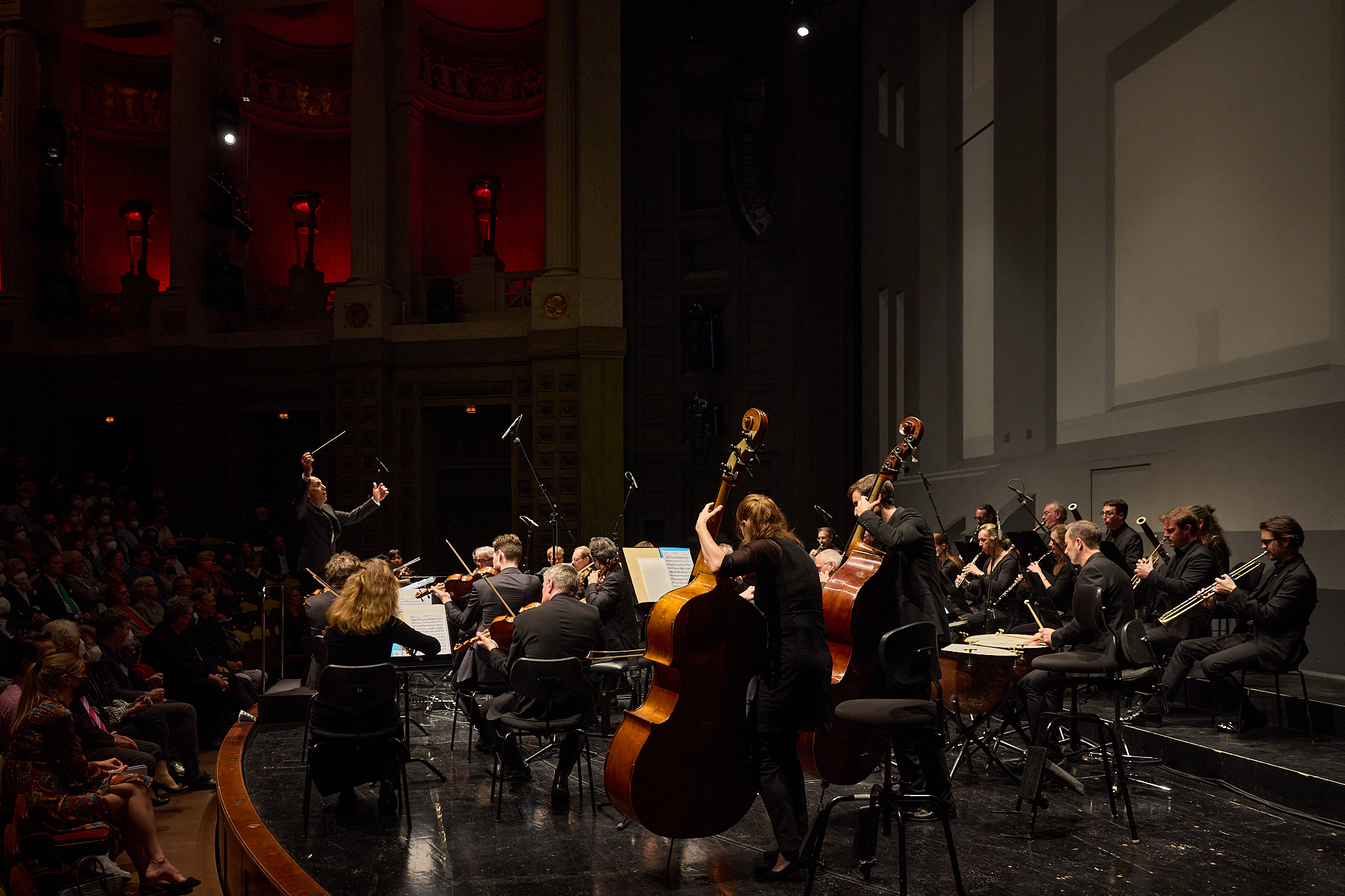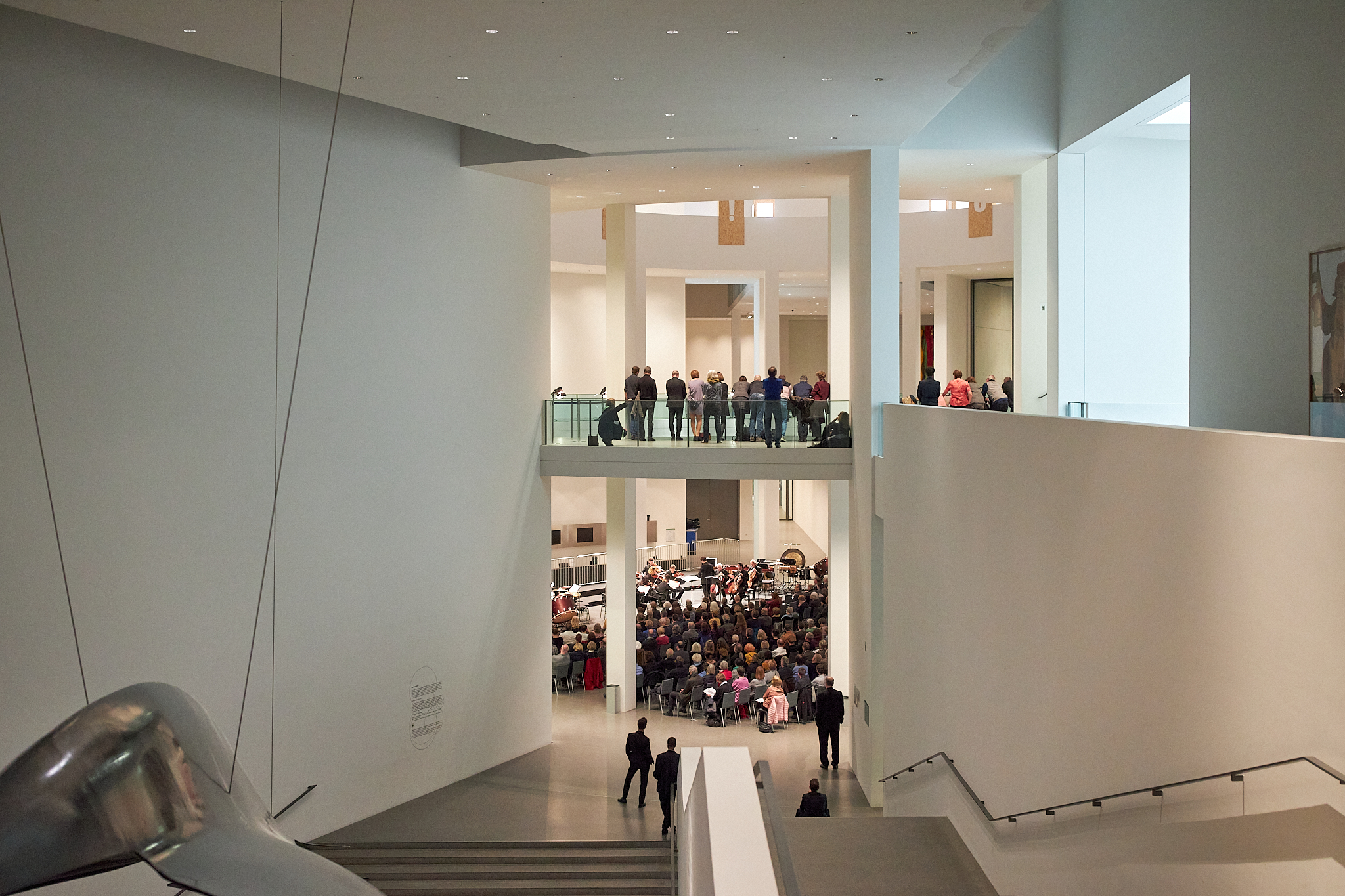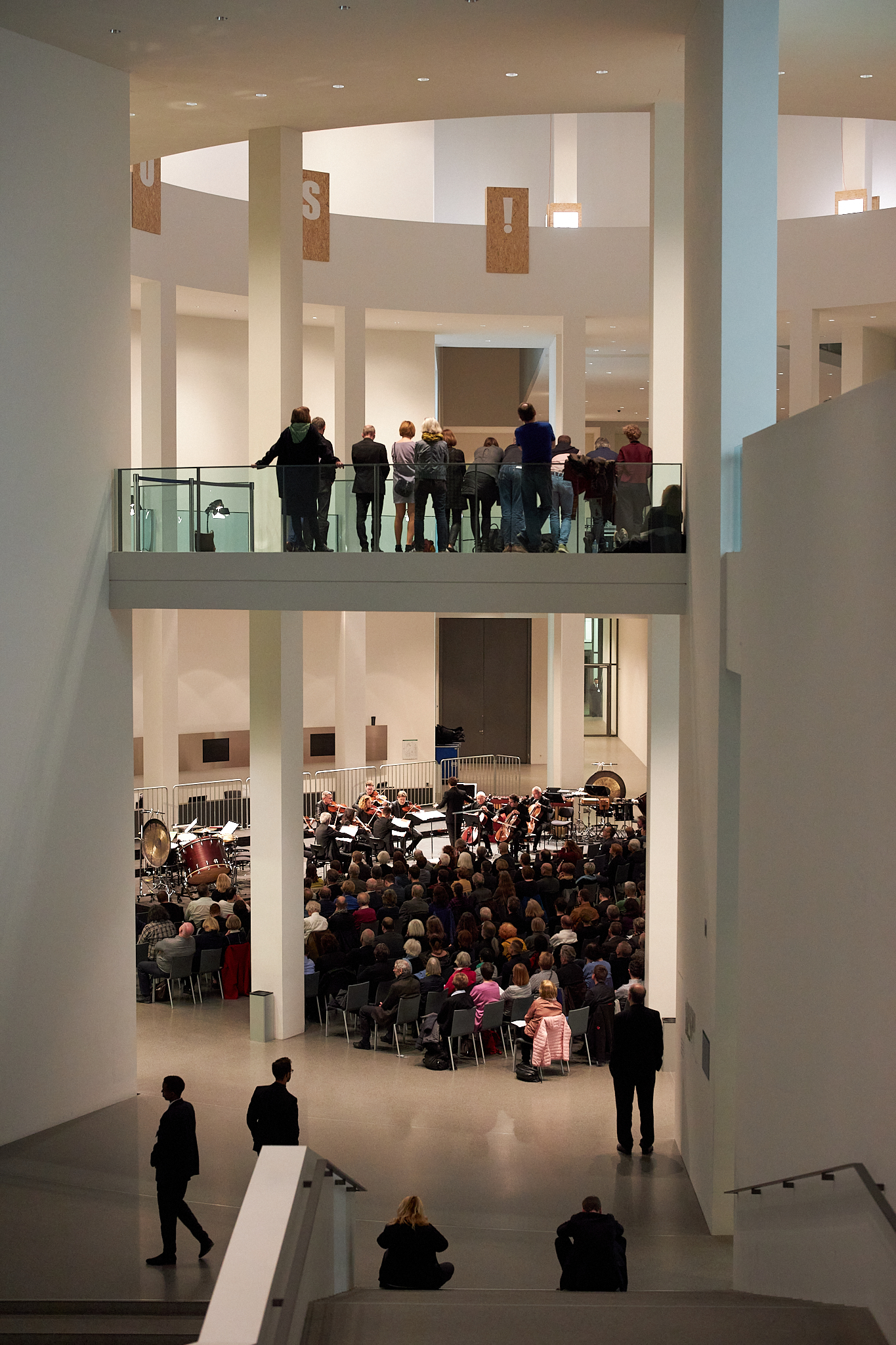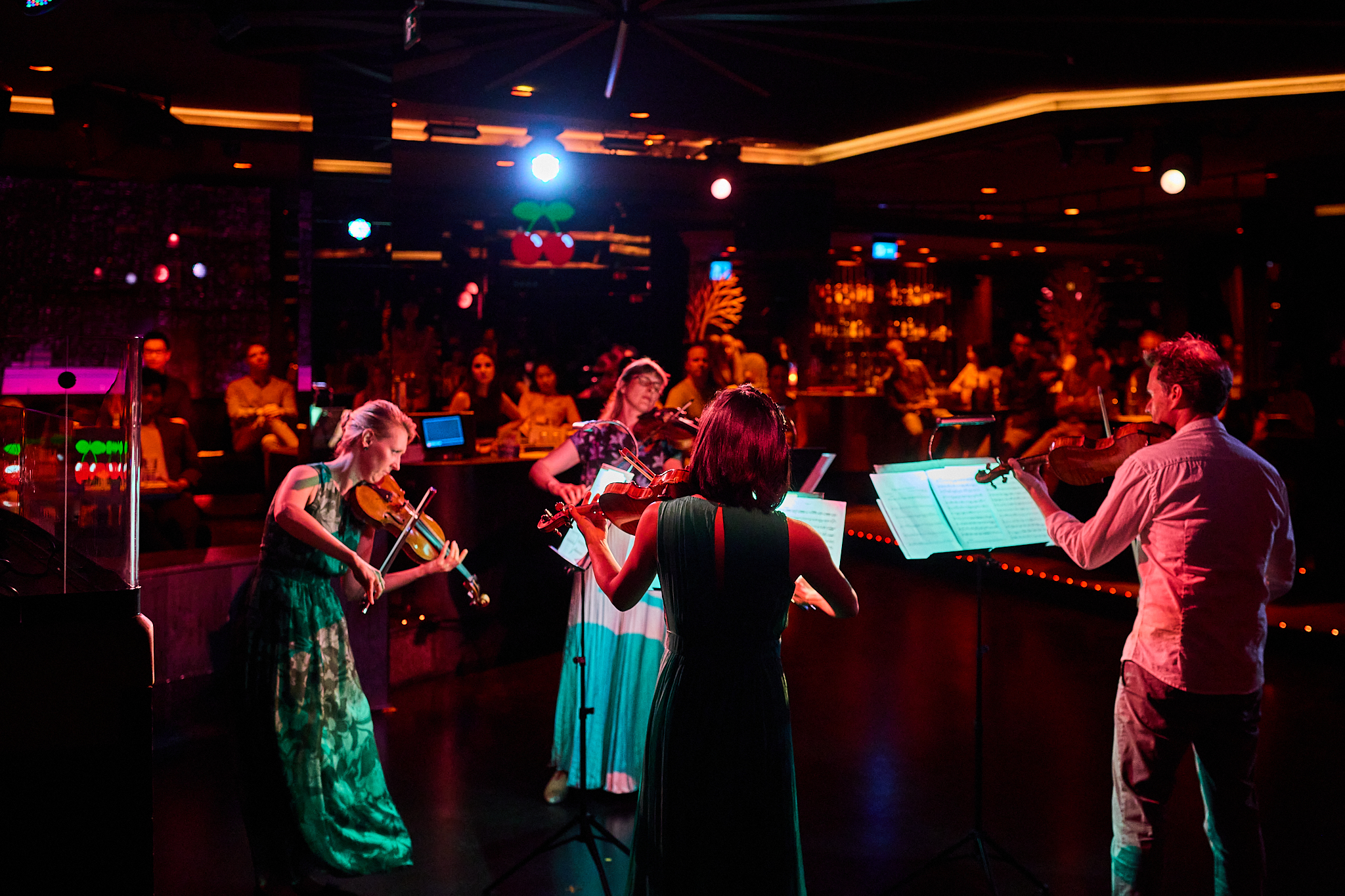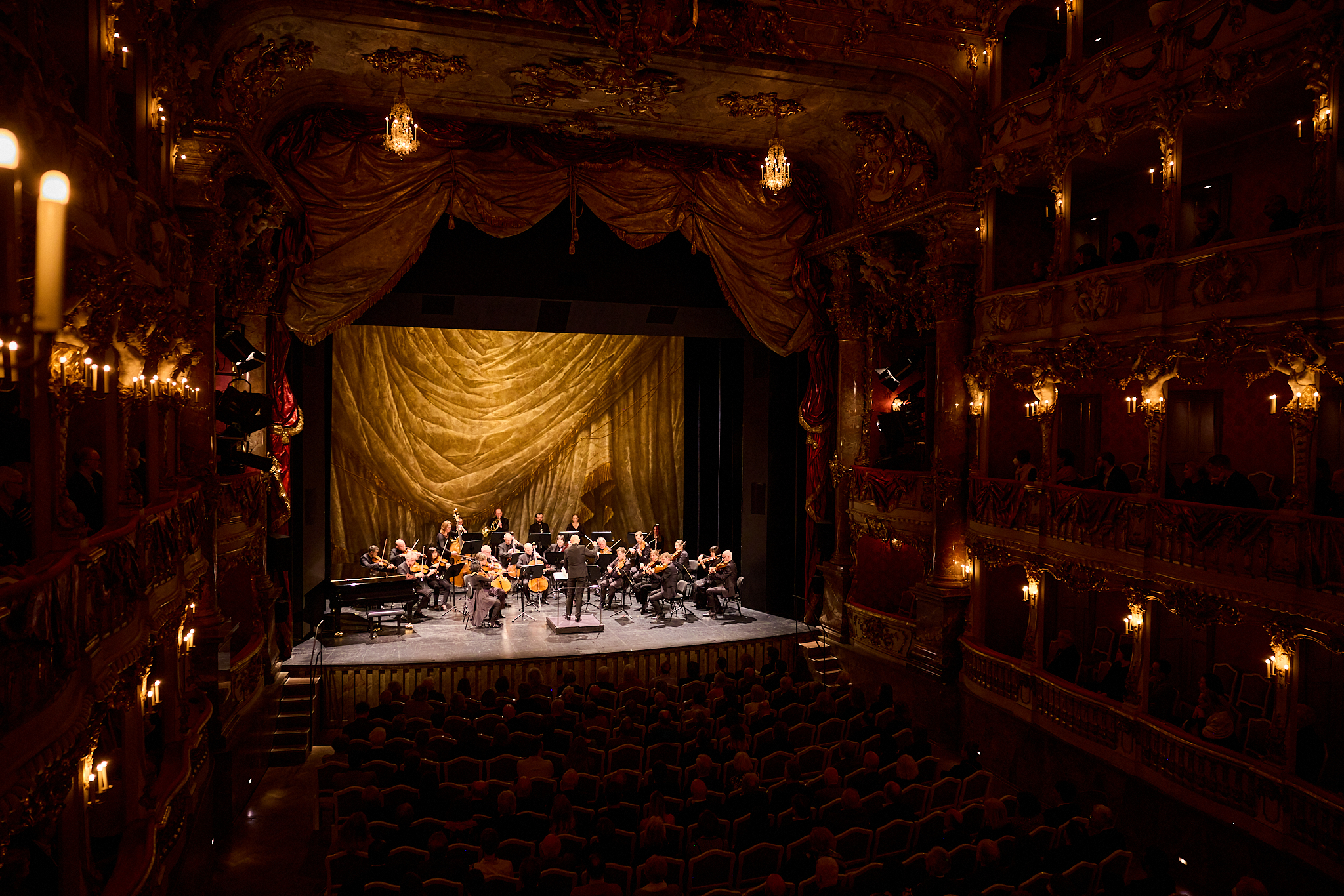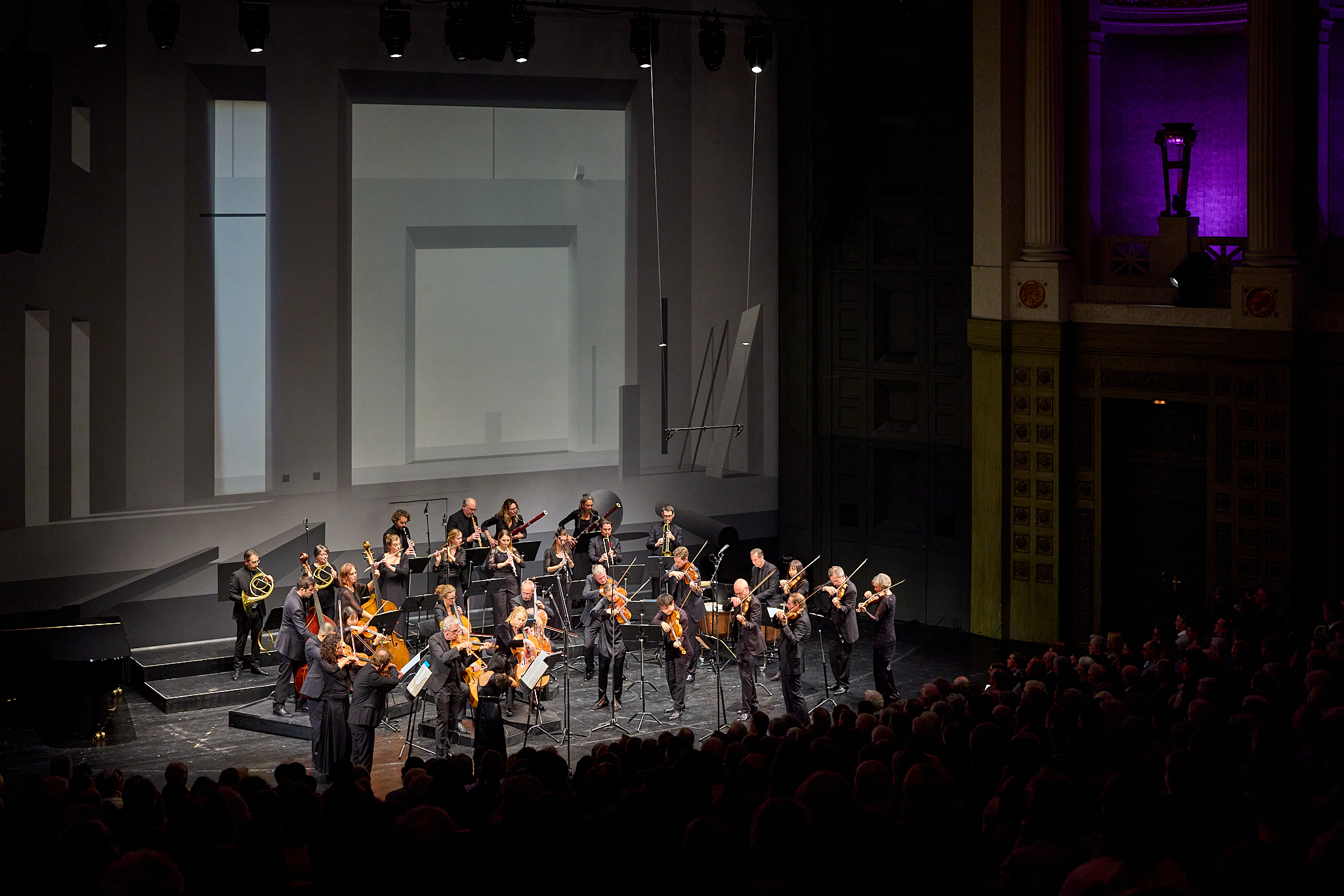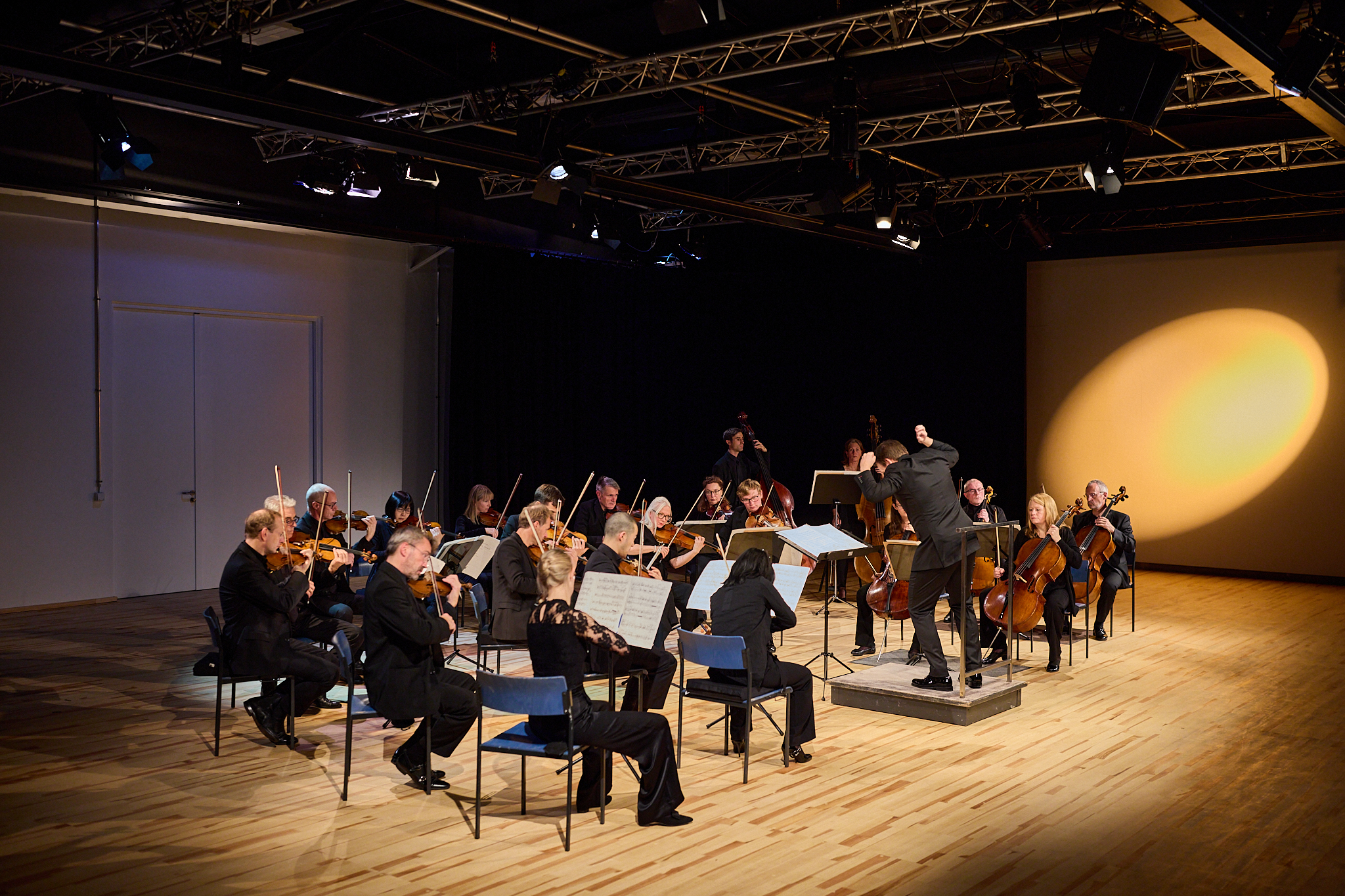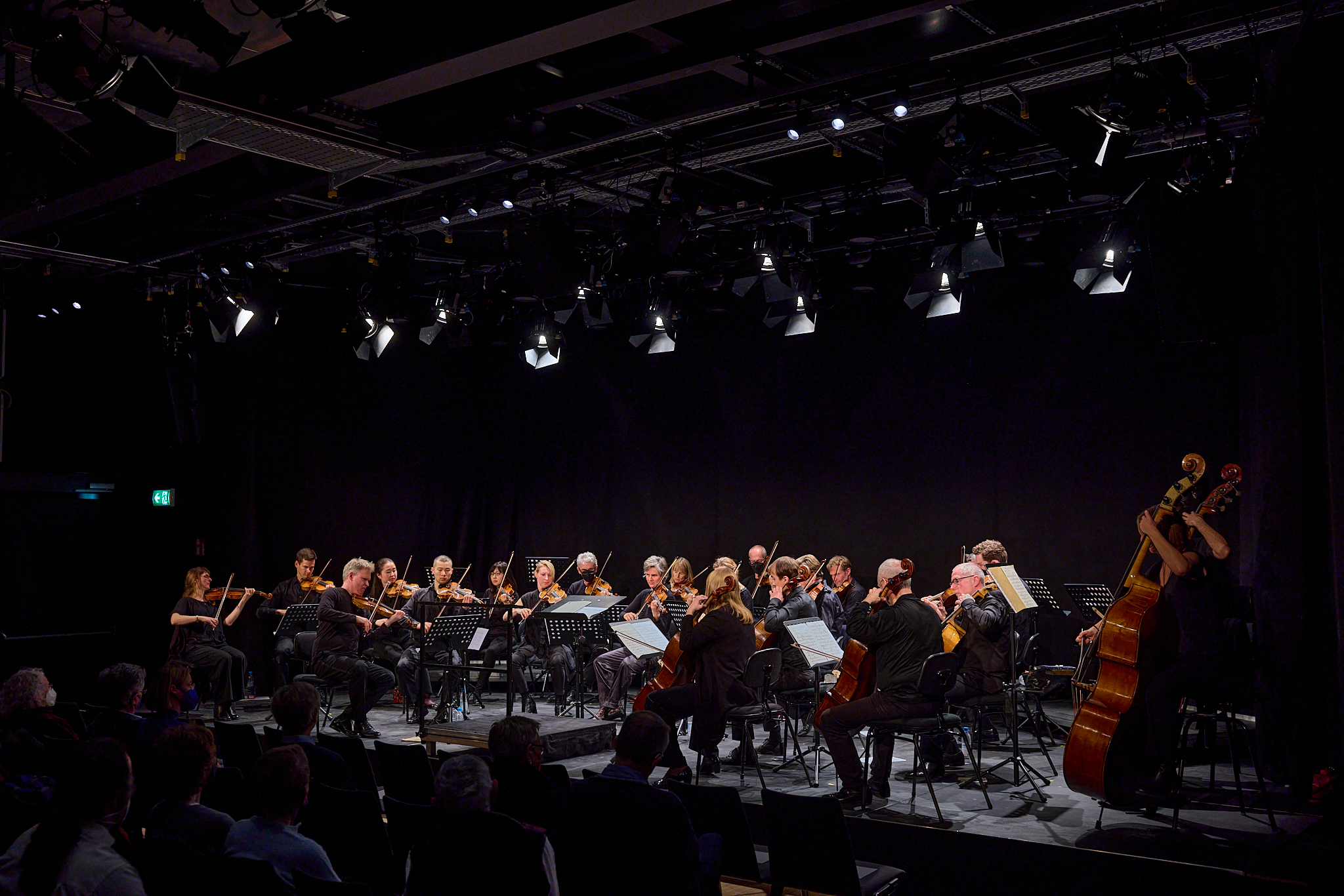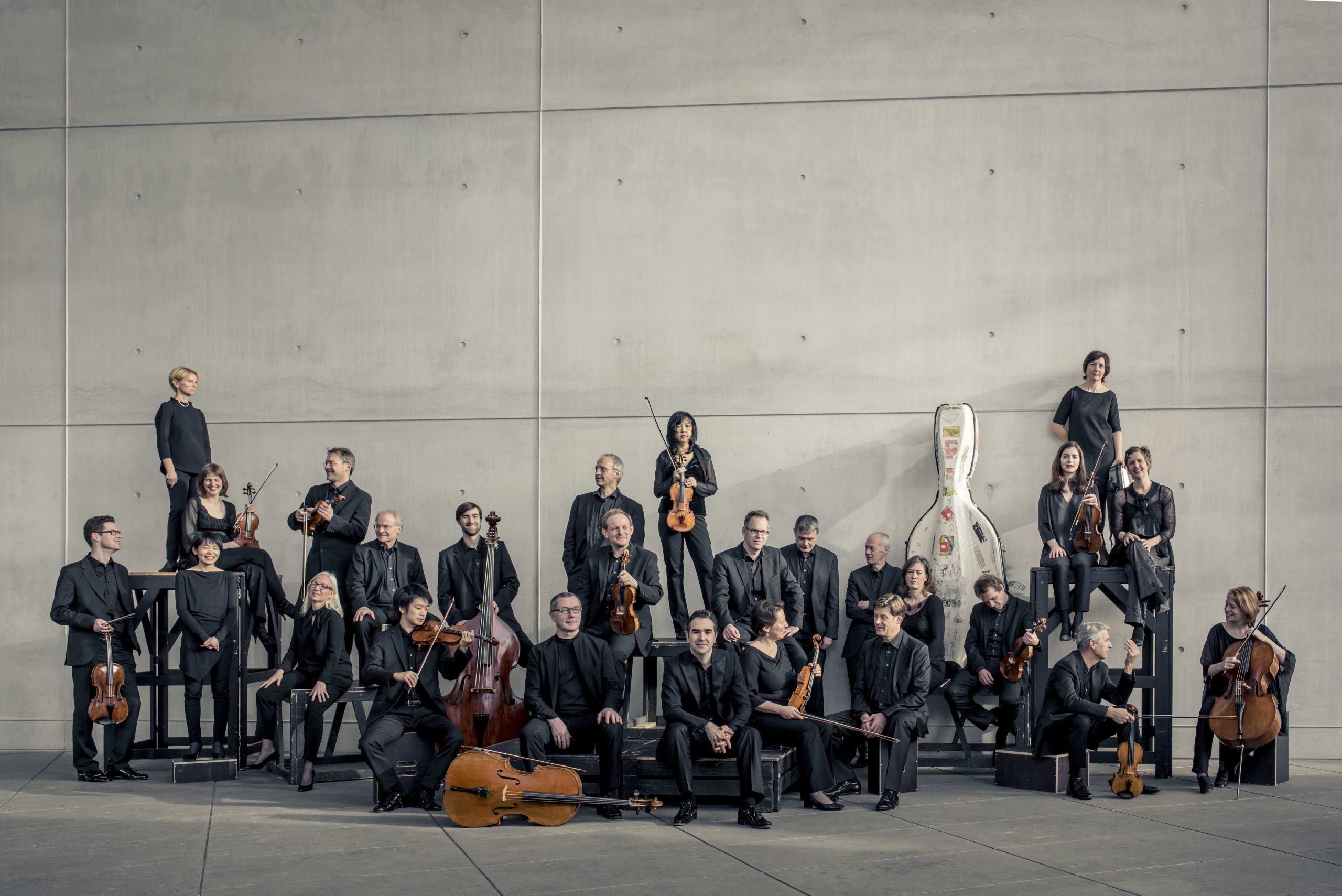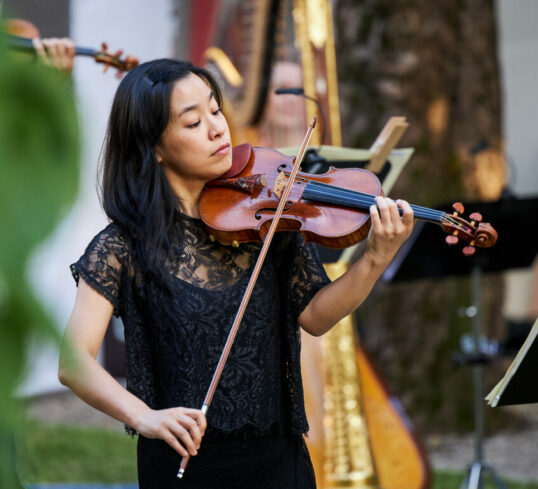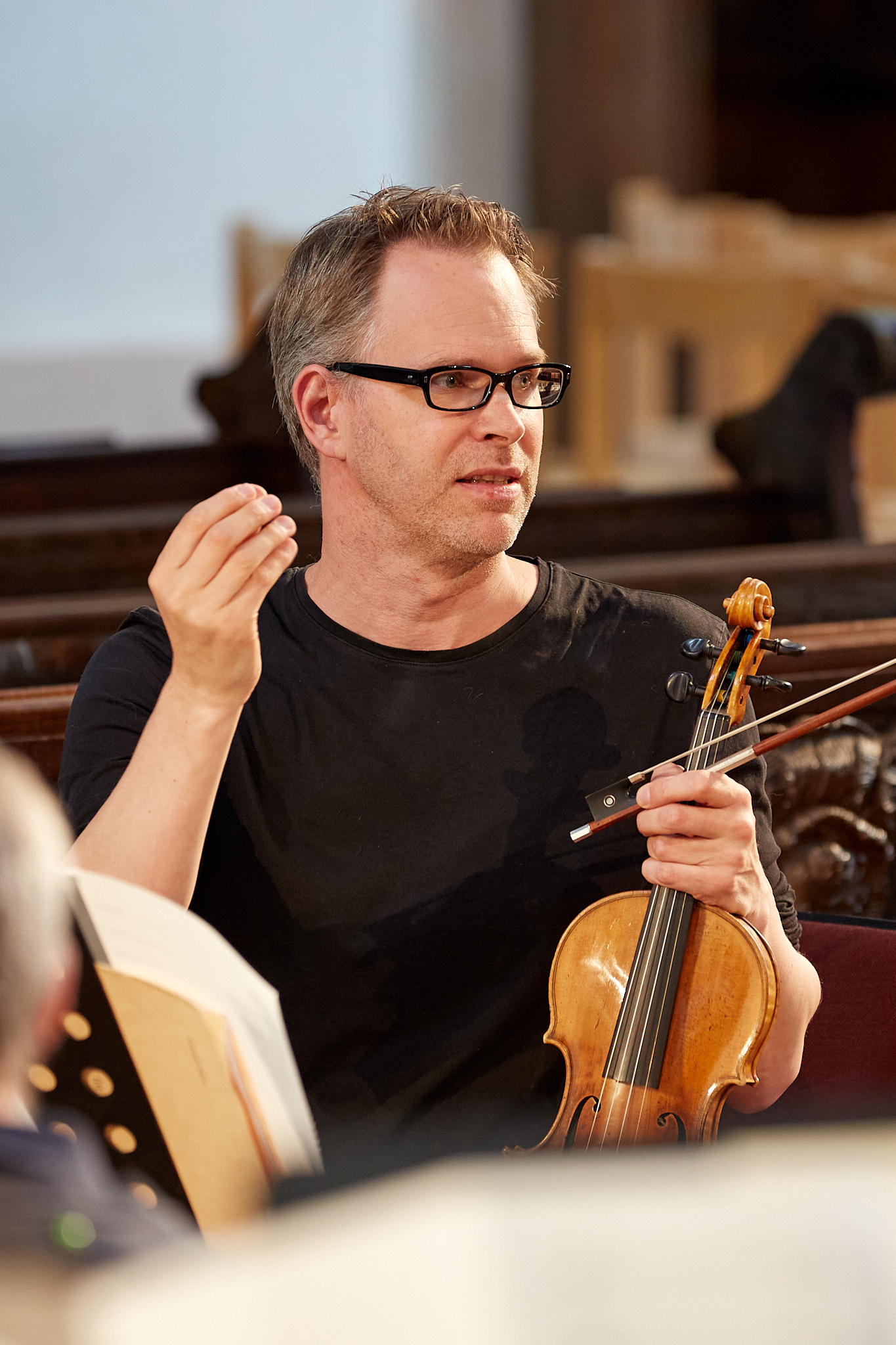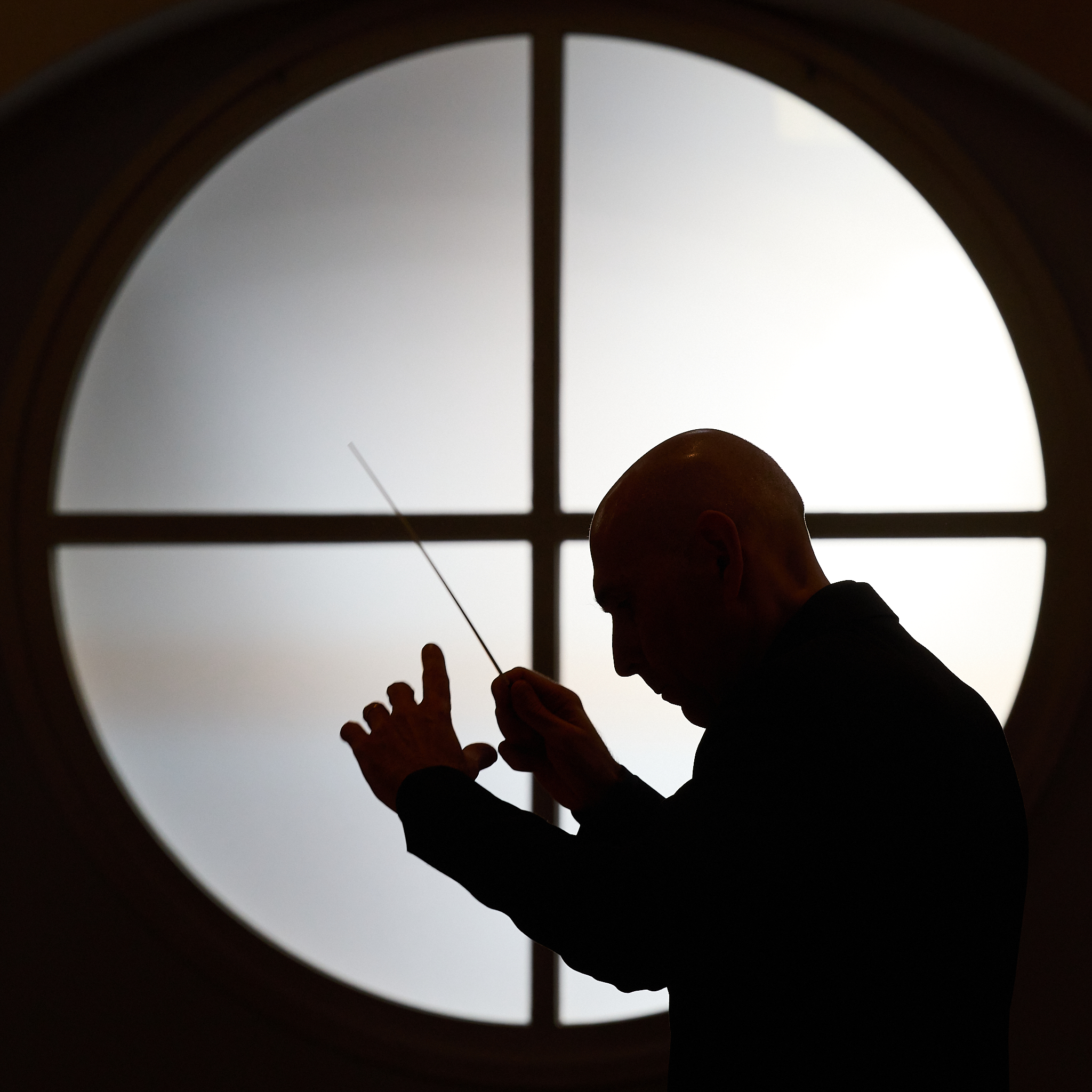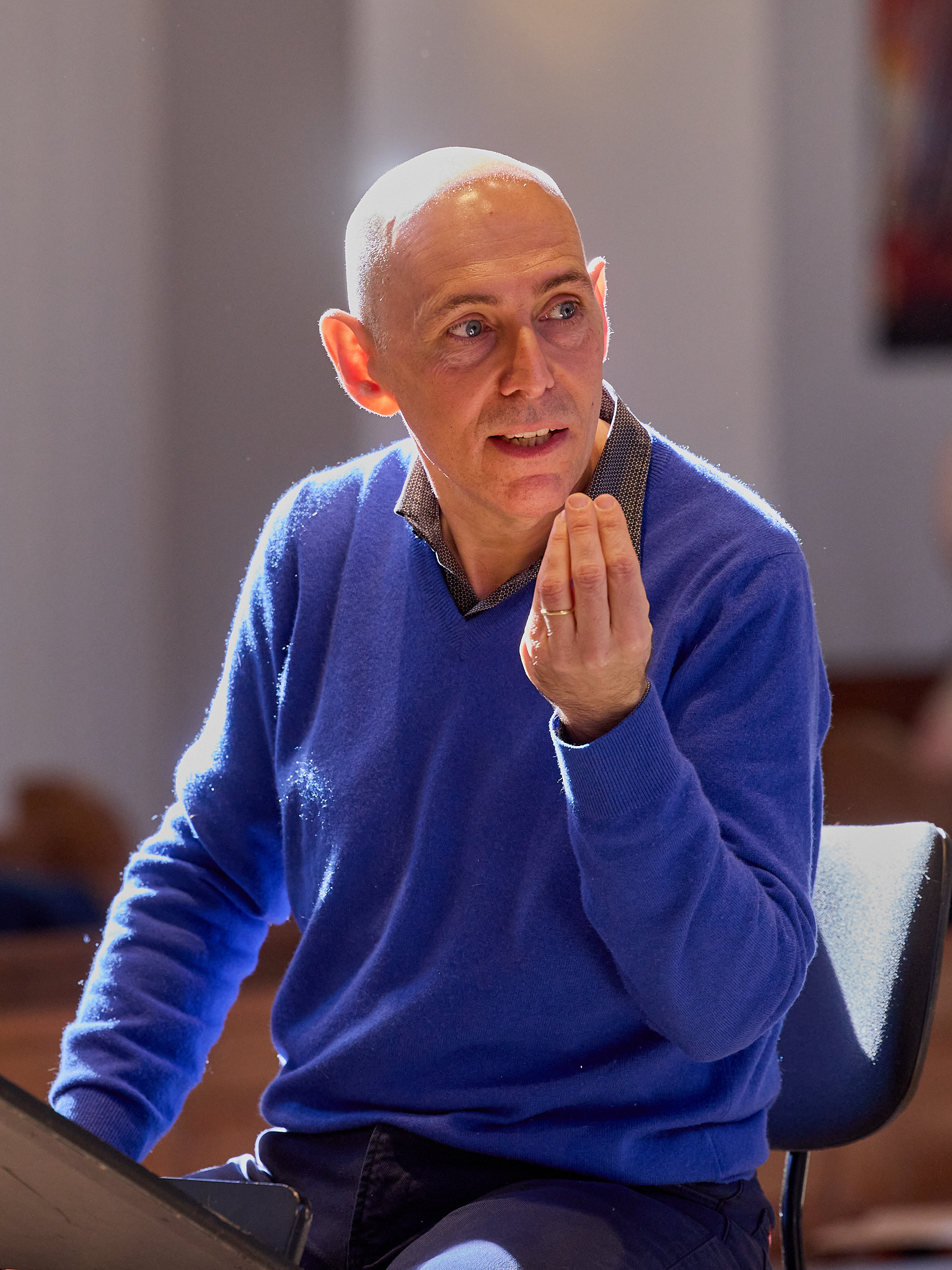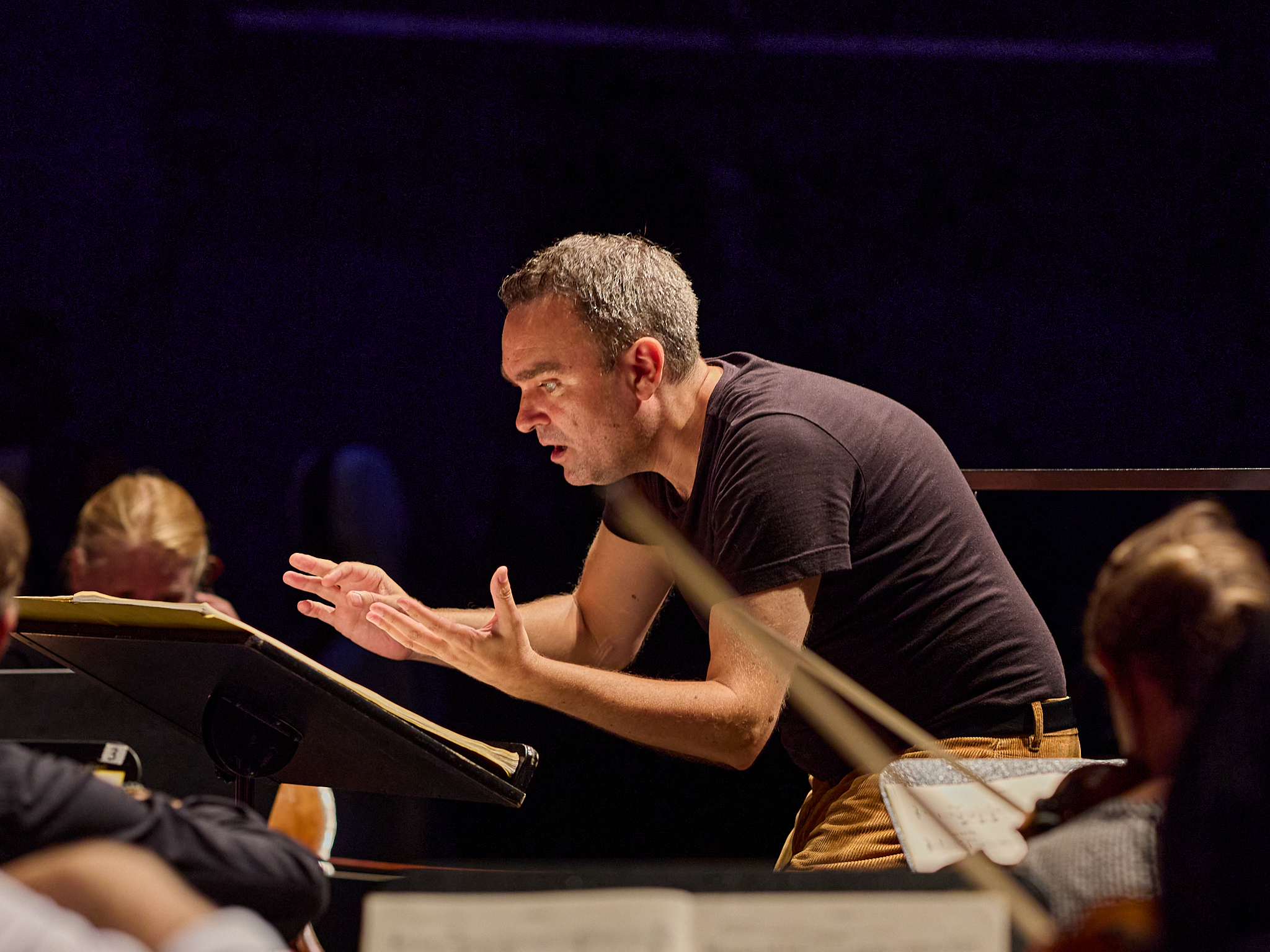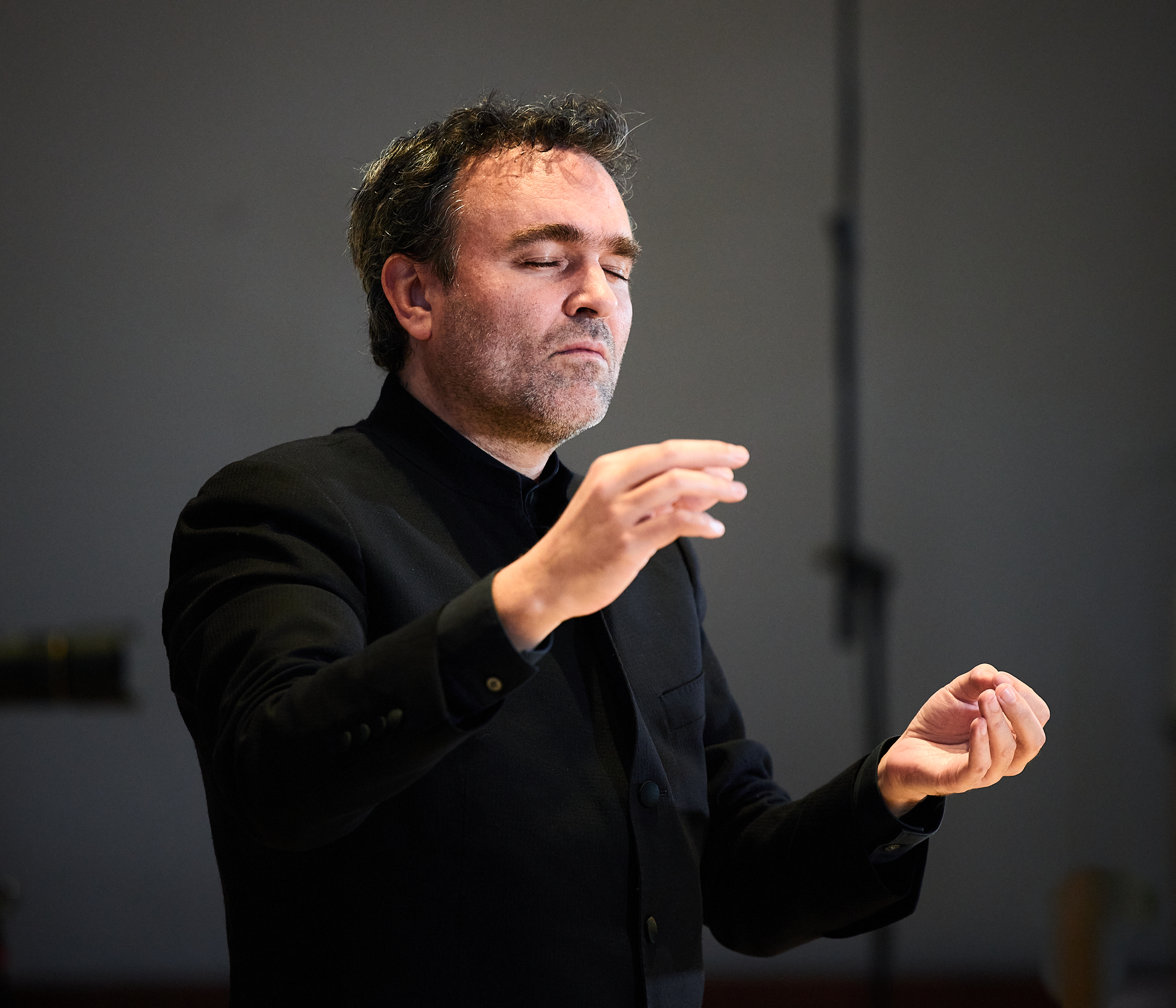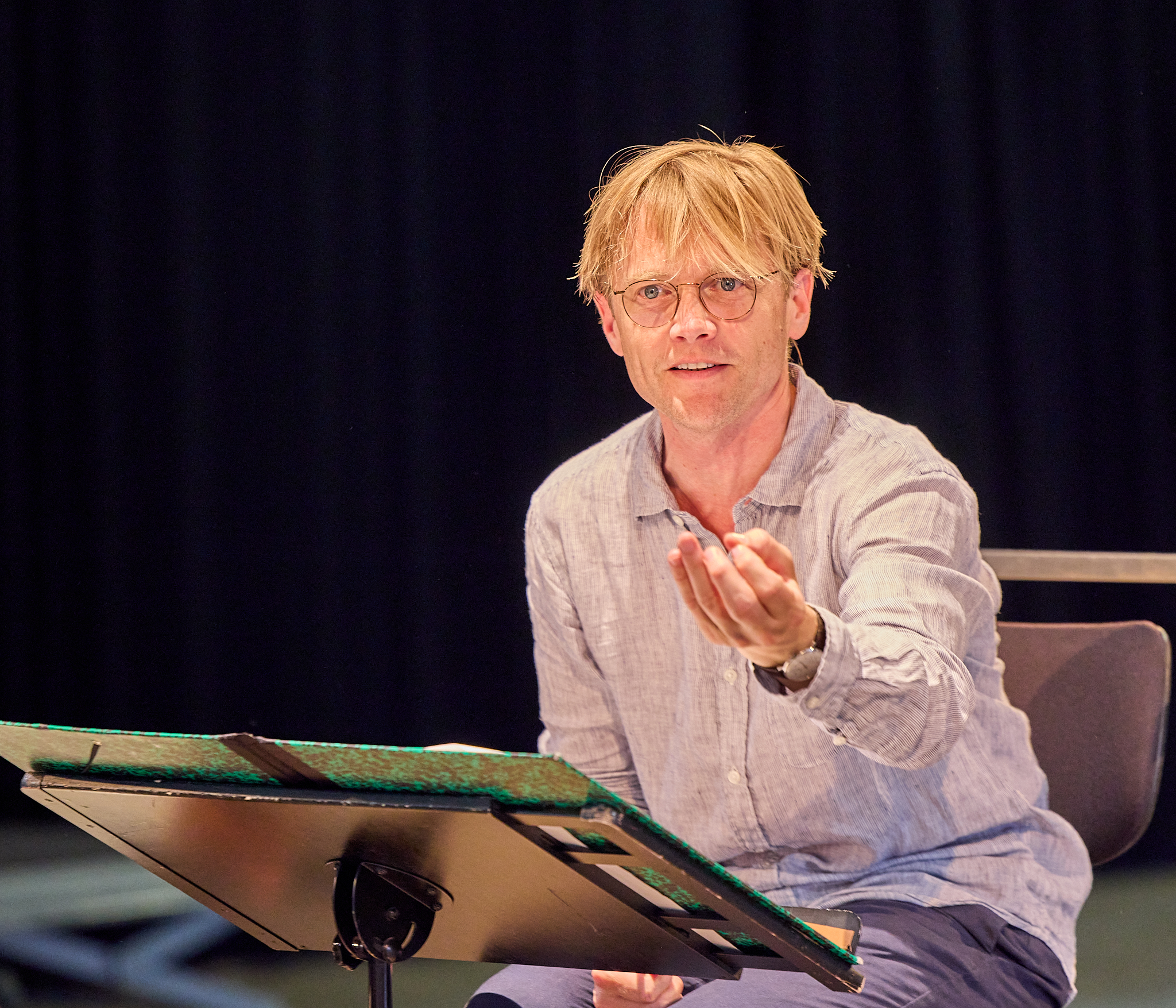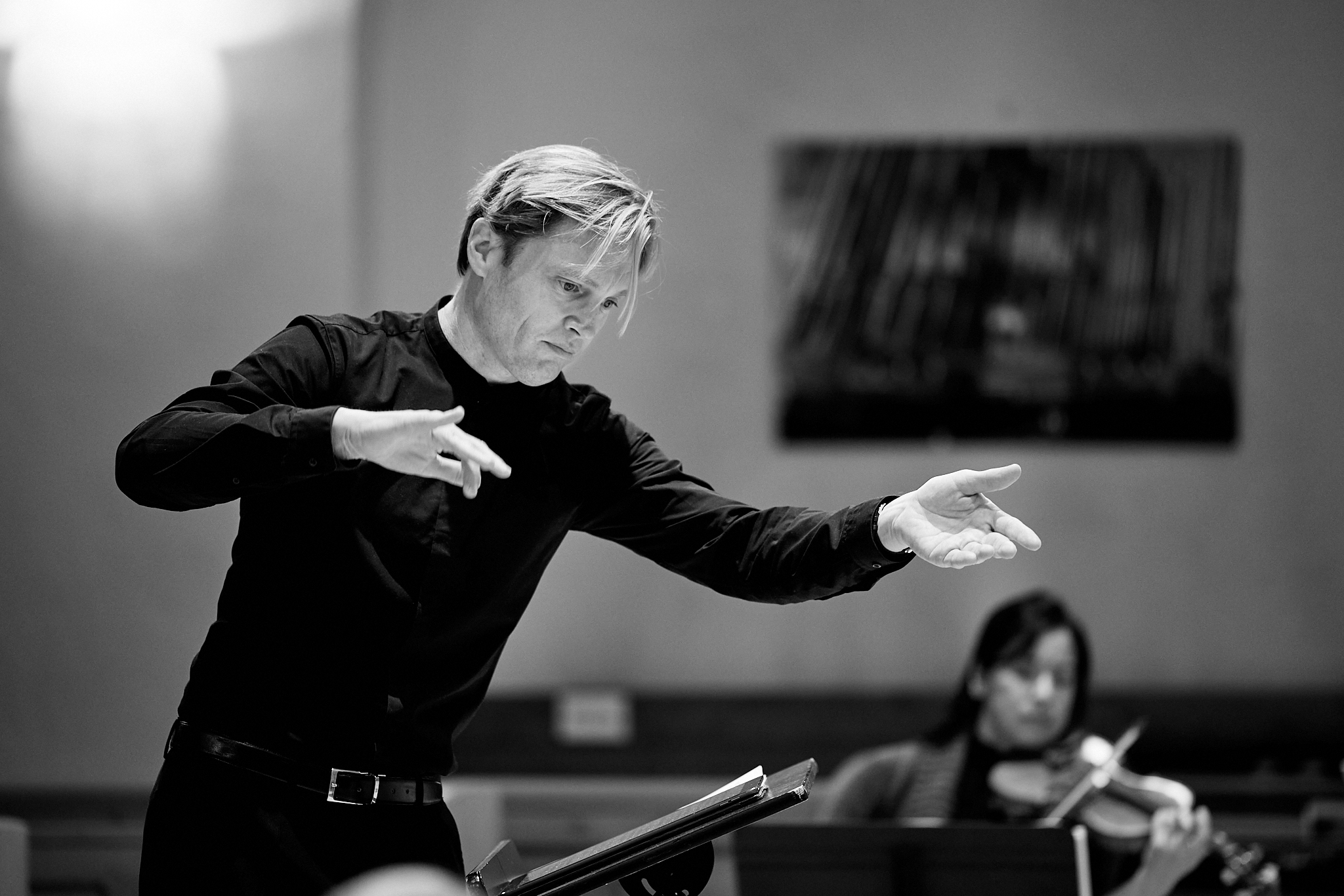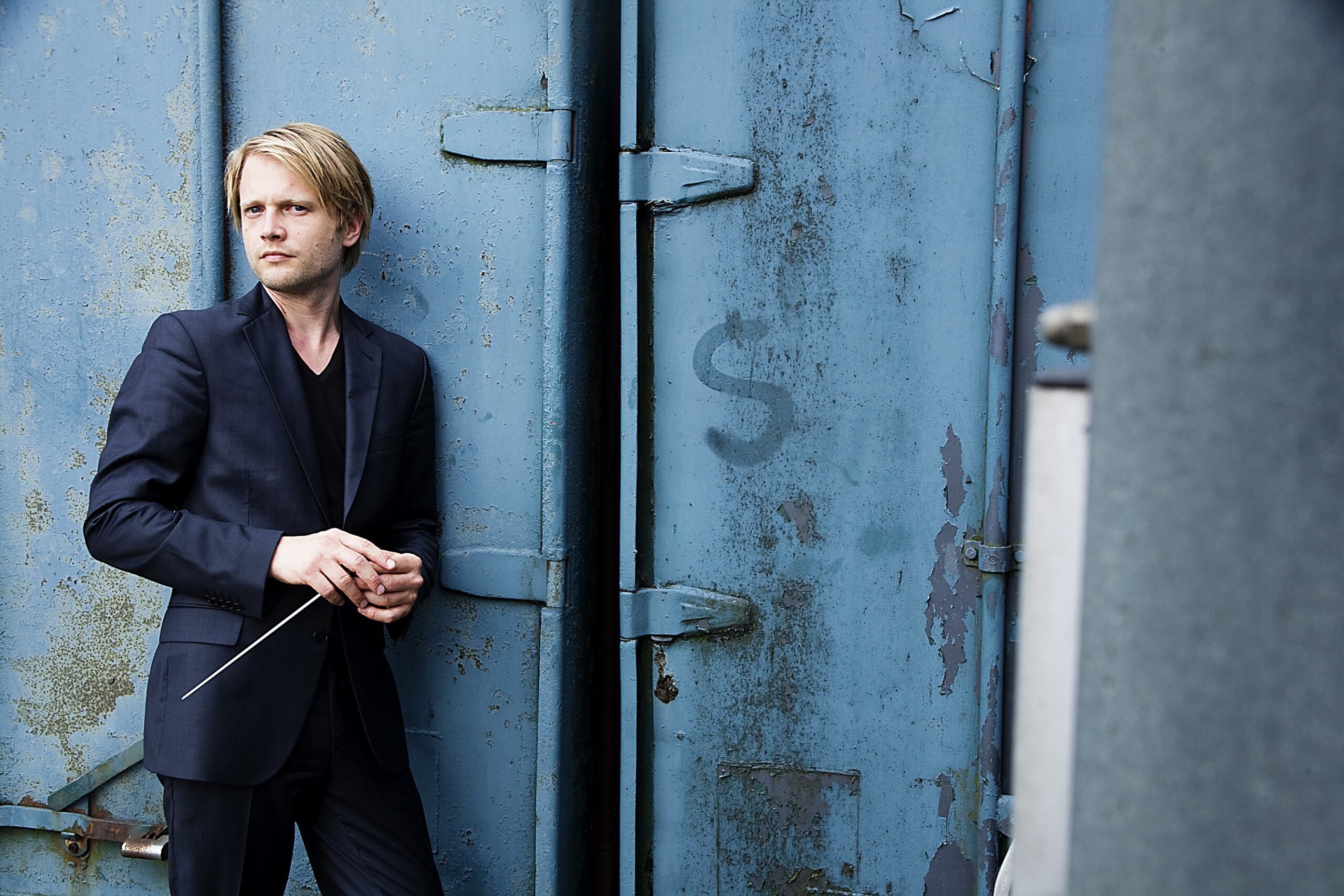PHOTOS AND BIOGRAPHIES
The photos may be reproduced free of charge provided the credits are given.
ORCHESTRA BIOGRAPHY
Münchener Kammerorchester (MKO) / Munich Chamber Orchestra
The Munich Chamber Orchestra (Münchener Kammerorchester, or MKO) is known and acclaimed throughout the world for its varied and thrilling programmes. With great curiosity and open-mindedness, stylistic diversity and a top-calibre performance level, it combines music from past centuries with works of today, relying on powers of association and excitement. It is also constantly on the lookout for innovative concert formats and new cultural synergies, thereby projecting a unique profile on the international orchestral landscape.
MORE
A new era dawns for the MKO in the 2022-23 season: for the first time in its over 70-year history the orchestra will depart from its previous organisational structure, with a position for principal conductor, and redefine itself. For the next three years it will work with three ‘associated conductors’ at once – a unique organisational model based neither on grass- roots democracy nor on a dominant personality. Instead, the new arrangement will further strengthen the MKO’s self-reliance and creativity, sharpening its image and quality with three contrasting artistic personalities.
The associated conductors – Jörg Widmann, Enrico Onofri and Bas Wiegers – almost ideally embody the orchestra’s broad spectrum and unbridled will to probe new dimensions in music from the baroque era to the present day. Jörg Widmann already worked closely with the MKO as a composer and soloist in the 1990s, while Enrico Onofri, the former concertmaster of the baroque ensemble Il Giardino Armonico, is a pioneer in period performance practice. Bas Wiegers, a baroque violinist, has also sought to explore historically informed perspectives in modern music. They will be joined by a number of musical friends with whom the orchestra has worked on a regular basis, including Isabelle Faust, Nicolas Altstaedt, Ilya Gringolts, Vilde Frang, Christian Tetzlaff and Alexander Lonquich.
Concerts headed by one of the MKO’s two concertmasters, Yuki Kasai and Daniel Giglberger, will remain an important part of its activities. The core of the ensemble consists of 28 permanently employed string players from 14 countries. A stellar group of regular guests from top-tier European orchestras allows the MKO to expand its membership, allowing it to give benchmark performances of masterpieces from the classical-romantic repertoire, and to kindle its audiences’ excitement for music over and over again with its energy and commitment.
Founded in 1950 by Christoph Stepp, the MKO was shaped by Hans Stadlmair for over four decades, beginning in 1956. The era of Christoph Poppen (1995-2006) was followed by ten years under the artistic direction of Alexander Liebreich. From 2016 to 2022 the orchestra’s principal conductor was Clemens Shuldt. Since then its artistic direction has resided with an artistic board consisting of the two concertmasters, two additional orchestra members, its managing director and its artistic planer. The MKO is subsidised with public funds from the Free State of Bavaria, the City of Munich and the District of Upper Bavaria. Since the 2006-07 season its main official sponsor has been European Computer Telecoms EG (ECT).
The MKO places great store in the dramatic conception of its programmes and on the long- term cultivation and further development of the chamber orchestra repertoire. For decades it has been a unique and bustling workshop for the music of today. It has commissioned and/or premièred a great many new works, receiving pieces from composers of the stature of Iannis Xenakis, Wolfgang Rihm, Tan Dun, Chaya Czernowin, Georg Friedrich Haas, Pascal Dusapin, Erkki-Sven Tüür, Thomas Larcher, Tigran Mansurian, Salvatore Sciarrino and Jörg Widmann. In recent years alone it has commissioned new works inter alia from Beat Furrer, Milica Djordjević, Clara Iannotta, Mark Andre, Stefano Gervasoni, Márton Illés, Miroslav Srnka and Lisa Streich, and is currently working on a violin concerto from Chaya Czernowin, a viola concerto from Dieter Ammann and a piece for string orchestra from Johannes Maria Staud. For some time it has deliberately expanded its repertoire by commissioning works that dispense with a conductor, e.g. by David Fennessy, Younghi Pagh-Paan and Samir Odeh- Tamimi.
In addition to its concert series in Munich’s Prince Regent’s Theatre, the MKO’s ‘Nachtmusiken der Moderne’ (Serenades of Modernism), held in the unique atmosphere of the rotunda in the Pinakothek der Moderne (Modern Art Gallery), has long achieved cult status. The ‘MKO Songbook’, in Munich’s Schwere Reiter Theatre, has established a format focusing on MKO-commissioned works and music by Munich composers. Chamber music of myriad types also bulks large in the orchestra’s activities. Together with the Munich Philharmonic Orchestra, the musicians of the MKO offer the BMW Club Concerts, presenting ‘their’ music to young audiences in the city’s club scene. Viewing music outreach as one of its core tasks, the MKO also has a range of offerings for young and old alike. Moreover, as a new institution slated for the remodelled Gasteig cultural complex in Haidhausen, the MKO is strongly committed to cultural outreach with the Gasteig’s other institutions.
The MKO’s networking in Munich and its collaborations with local institutions form a major emphasis in its activities. It has repeatedly entered joint projects with the Bavarian State Opera, Bavarian Theatre Academy, Munich Biennale, Villa Stuck, Haus der Kunst, DOK.fest, Schauburg Youth Theatre, Biotopia, Munich University, Munich Technical University, Adult Education Centre and Munich University of Music and Theatre.
Some 60 concerts per year have taken the MKO to renowned concert halls all over the globe, including tours of Asia, Spain, Scandinavia and South America. It has undertaken several guest performances in conjunction with the Goethe Institute; especially noteworthy was an acclaimed academy with North Korea in autumn 2012, where the orchestra had an opportunity to work with North Korean music students.
ECM Records has released recordings of the MKO playing works by Karl Amadeus Hartmann, Sofia Gubaidulina, Giacinto Scelsi, Valentin Silvestrov, Isang Yun, Joseph Haydn, Toshio Hosokawa and Tigran Mansurian. New recordings of music by Thomas Larcher are currently in preparation at ECM, as is a complete recording of Beethoven’s piano concertos with the pianist Alexander Lonquich. A number of MKO recordings have been released by Sony Classical, such as Rossini overtures, the Mozart Requiem and Mendelssohn’s incidental music to A Midsummer Night’s Dream and Fourth Symphony. Others have appeared on the Warner label with the Bavarian Radio Chorus, the flautist Magali Mosnier, the oboist François Leleux and Les Vents Français. Its recordings of music by Georg Katzer, Friedrich Goldmann and Nikolaus Brass were released by NEOS.
“LESS“
ORCHESTRA PHOTOS
CLICK TO ENLARGE
Das Münchener Kammerorchester
Das Münchener Kammerorchester
Das MKO, geleitete von Enrico Onofri auf der Bühne im Cuvilliestheater
MKO unter Yuki Kasai im Prinzregententheater
Das MKO dirigiert von Jörg Widmann bei der Reihe 'MKO Songbook' im Schwere Reiter.
Das Münchener Kammerorchester
CONCERT MASTER
YUKI KASAI
Concert Master Yuki Kasai
DANIEL GIGLBERGER
Concert Master Daniel Giglberger
ENRICO ONOFRI
Principal conductor of the Filarmonica Toscanini in Parma, principal guest conductor of the Haydn Philharmonie in Eisenstadt, associated conductor of the Orchestre National d’Auvergne, from 2022 Associated Conductor of the Münchener Kammerorchester, music director and conductor of the Academia Montis Regalis orchestra, Enrico grown up in the antique atelier of his parents in Ravenna (Italy), surrounded by the beauty of the past since the beginning of his music studies, developing hence a passion for the historical performances. As a conductor and soloist, he was so led to explore the repertoire from the 17th to the 20th century creating his personal language through the knowledge of the historical praxes, intended as extraordinary sources of inspiration for new ideas and panoramas in interpretation. His career began with an invitation from Jordi Savall to be the concertmaster of La Capella Real when he was still a student. Very soon he found himself working with groups such as the Concentus Musicus Wien, Ensemble Mosaiques, and Il Giardino Armonico, the ensemble he led as concertmaster and soloist from 1987 to 2010. In 2002 he entered upon a conductor’s career, which has brought him great acclaim and numerous invitations from orchestras, opera houses and festivals all over Europe, Japan and Canada. From 2004 to 2013 he was the principal conductor of the Divino Sospiro in Lisbon, since 2006 he’s guest conductor with the Orquesta Barroca de Sevilla, and since 2021 principal conductor of the Real Câmara Baroque Orchestra in Lisbon.
Invitations as conductor or as conductor in residence include orchestras such as the Akademie für Akademie für Alte Musik, Camerata Bern, Bochumer Symphoniker, Vienna Chamber Orchestra, Festival Strings Lucerne, Kammerorchester Basel, Tafelmusik Toronto, Orchestra Ensemble Kanazawa, Orchestra del Maggio Musicale Fiorentino, Real Orquesta Sinfonica de Sevilla, Orquesta de l’Opéra de Lyon, Orquesta Sinfonica de Galicia, Orchestra Metropolitana Lisbon, Real Filharmonia de Galicia, Riga Sinfonietta and more. In the opera field, he conducted opera productions at the Lyon Opéra, Teatro de la Maestranza of Sevilla, Torino Teatro Regio, Halle Staatstheater, among others, working with stage directors such as Alessio Pizzech, Mariame Clément, David Marton, Stephen Lawless.
He founded the chamber group Imaginarium Ensemble to perform the great Italian solo violin repertoire from the early Baroque until the Age of the Enlightenments. Imaginarium Ensemble’s CDs have been awarded many prizes. Among them, the prestigious French Diapason d’or de l’année 2020 for “Into Nature, Vivaldi’s Seasons and other sounds from Mother Earth”.
Enrico has performed in the world’s most famous concert halls, including the Musikverein and Konzerthaus in Vienna, Mozarteum in Salzburg, Philarmonie and Unter den Linden Opera in Berlin, Alte Oper in Frankfurt, Concertgebouw in Amsterdam, Teatro San Carlo in Naples, Carnegie Hall and Lincoln Center in New York, the Wigmore Hall and Barbican in London, Tonhalle in Zurich, Théâtre des Champs-Elysées and Théâtre du Châtelet in Paris, Auditorio Nacional in Madrid, Oji Hall in Tokyo, Osaka Symphony Hall, Teatro Colon in Buenos Aires, alongside artists like Nikolaus Harnoncourt, Gustav Leonhardt, Christophe Coin, Cecilia Bartoli, Katia and Marielle Labèque and more. Many of Enrico’s recordings with Teldec, Decca, Astrée, Naive, Deutsche Harmonia Mundi / Sony, Passacaille, Nichion, Pentatone, Winter & Winter, Opus111, Virgin, Zig Zag Territoires etc., have been awarded prestigious international prizes, such as the Gramophone Award, Grand Prix des Discophiles, Echo-Deutsche Schallplattenpreis, Premio Caecilia, Premio Fondazione Cini of Venice, La Nouvelle Academie du Disque and numerous Diapason d’Or, Choc de la Musique, 10 de Répertoire des disques compacts.
Enrico has been professor of baroque violin and interpretation of baroque music at conservatoire A.Scarlatti in Palermo since 1999, currently at conservatoire G.Rossini in Pesaro. He has been invited to give master classes throughout Europe, Canada, USA (Juilliard School, New York) and Japan. He’s been tutor and conductor with the EUBO (European Union Baroque Orchestra). In 2019 he’s been awarded the F.Abbiati prize as best soloist of the year.
Zum Vergrößern der Fotos anklicken.
Enrico Onofri
Enrico Onofri
Enrico Onofri
Enrico Onofri
Enrico Onofri
JÖRG WIDMANN
Clarinetist, composer and conductor Jörg Widmann is one of the most versatile and intriguing artists of his generation. As Carnegie Hall’s 2019/20 Richard and Barbara Debs Composer Chair his work will be focused throughout the season. Further performances see him appear in all aspects as clarinetist, composer and conductor as artist in residence at WDR Sinfonieorchester, at Palau de la Música Barcelona and at Bergen International Festival.
Chamber music performances will see him in concerts with long-standing chamber music partners such as Andras Schiff, Daniel Barenboim, Mitsuko Uchida, Tabea Zimmermann, Antoine Tamestit and the Hagen Quartet at the Schubertiade Schwarzenberg, Salzburg Festival, Carnegie Hall New York and Wiener Konzerthaus amongst others.
Continuing his intense activities as a conductor, Jörg Widmann performs this season with the Ensemble Kanazawa, WDR Sinfonieorchester, Swedish Chamber Orchestra and Hessisches Staatsorchester Wiesbaden. In November 2019 he will lead the Irish Chamber Orchestra as their Principal Conductor on tour through the US and in concerts throughout Europe.
Widmann studied clarinet with Gerd Starke in Munich and Charles Neidich at the Juilliard School in New York. He performs regularly with renowned orchestras, such as Gewandhausorchester Leipzig, Orchestra National de France, Tonhalle-Orchester Zürich, National Symphony Orchestra Washington, Orchestre symphonique de Montréal, Vienna Philharmonic Orchestra, Netherlands Philharmonic Orchestra and Toronto Symphony Orchestra. He collaborates with conductors such as Daniel Barenboim, Christoph Eschenbach and Christoph von Dohnányi.
Widmann gave the world premiere of Mark Andre’s Clarinet Concerto über at the Donaueschinger Musiktage 2015. Other clarinet concerti dedicated to and written for him include Wolfgang Rihm’s Musik für Klarinette und Orchester (1999) and Aribert Reimann’s Cantus (2006).
Widmann studied composition with Kay Westermann, Wilfried Hiller and Wolfgang Rihm. His works continue to receive many awards such as the prestigious Chamber Music Society of Lincoln Center’s Elise L. Stoeger Prize (2009), the Paul Hindemith Prize in 2001, the Arnold Schönberg Prize by the Vienna Arnold Schönberg Centre and the Deutsches Symphonie-Orchester Berlin (2004) and both the SWR Sinfonieorchester Baden-Baden und Freiburg’s composition award and the Berliner Philharmoniker Academy’s Claudio Abbado Composition Award in 2006.
Widmann’s compositions are performed regularly by conductors such as Daniel Barenboim, Daniel Harding, Valery Gergiev, Kent Nagano, Christian Thielemann, Mariss Jansons, Andris Nelsons and Simon Rattle and premiered by orchestras such as the Wiener and Berliner Philharmoniker, New York Philharmonic, Orchestre de Paris, BBC Symphony Orchestra and many others.
Widmann’s appointment as Daniel R. Lewis Young Composer Fellow at the Cleveland Orchestra established an extraordinary artistic collaboration with the orchestra and its Principal Conductor Franz Welser-Möst including the world premiere of Widmann’s Flute Concerto, Flûte en suite in May 2011 followed by its European premiere in 2012/13 by the Berliner Philharmoniker and Emmanuel Pahud under Simon Rattle. Cleveland Orchestra featured Flûte en suite as centrepiece in their 2014 European tour, and dedicated an entire evening to Widmann’s works at the Berliner Philharmonie. His opera Babylon was premiered in 2012/13 at Bayerische Staatsoper under the baton of Kent Nagano.
Am Anfang by Anselm Kiefer and Jörg Widmann was premiered in July 2009 as part of the 20th anniversary of the Opéra Bastille, in which Widmann acted as composer, clarinetist and made his debut as conductor.
Widmann was Artist in Residence at leading Festivals and Orchestras such as Lucerne Festival and Salzburger Festspiele, Bamberger Symphoniker, Tonhalle-Orchester Zürich’s creative chair 2015/16, and both BOZAR and Elbphilarmonie’s artist in residence in its opening season. He was featured in Artist Portraits at Vienna’s Konzerthaus, Frankfurt’s Alte Oper and Cologne’s Philharmonie. In the 2017/18 season he was featured as the first ever Gewandhaus Composer in Leipzig’s history.
Widmann isFellow at the Wissenschaftskollegs in Berlin and a full member of the Bayerischen Akademie of Schönen Künste, and since 2007, the Freien Akademie der Künste Hamburg, the Deutschen Akademie der Darstellenden Künste and the Akademie der Wissenschaften und der Literatur Mainz. He is professor for composition at the Barenboim-Said Academy, Berlin.
Click to enlarge
Jörg Widmann
Jörg Widmann
Jörg Widmann
Jörg Widmann
Jörg Widmann
BAS WIEGERS
Bas Wiegers has distinguished himself with his charisma, openness, and nondogmatic approach at the helm of leading European orchestras and soloist ensembles. The conductor approaches his work with tremendous thoughtfulness and draws on his extensive experience as a violinist and a wide-ranging knowledge of repertoire, ranging from baroque to contemporary music.
In his homeland of the Netherlands, Bas Wiegers has worked with ensembles including the Netherlands Philharmonic Orchestra, Rotterdam Philharmonic, and, together with Peter Eötvös, the Royal Concertgebouw Orchestra. In addition, he has made guest appearances with the SWR Symphony Orchestra, WDR Symphony Orchestra, Estonian National Symphony Orchestra, Britten Sinfonia, Ensemble Modern, Munich Chamber Orchestra, at the Cologne Opera and at festivals such as November Music, Holland Festival, Wiener Festwochen, Wien Modern, Huddersfield Contemporary Music Festival, Aldeburgh Festival, and Acht Brücken in Cologne.
In the 2021/22 season he will conduct the Netherlands Radio Philharmonic Orchestra at the Concertgebouw, and will be at the rostrum of the Rundfunk-Sinfonieorchester Berlin for the first time. In December, a new song project dedicated to Mahler and Ives will receive its premiere in Vienna, performed together with Thomas Hampson and the Klangforum Wien, where he has been principal guest conductor since 2018.. He will also conduct the Klangforum at Ultima Festival Oslo, Ruhrtriennale, Warsaw Autumn, and Prague Spring Festival. Further appearances include the concerts with Musikfabrik Köln at the Elbphilharmonie Hamburg and with Ensemble Resonanz at Mozartfestival Würzburg.
Following a filmed production of Brittens The Turn of the Screw (Eva-Maria Höckmeyer), Bas Wiegers will return to the Opéra national de Lorraine for a new production of The Magic Flute (Anna Bernreitner). His debuts at the Stuttgart Opera (Death in Venice) and the Flemish Opera (KOMA), scheduled for 2020, had to be cancelled due to the Corona virus, alongside the Klagenfurt premiere of Sciarrino’s new opera Il canto s’attrista, perché?, which was rehearsed almost completely under his direction.
Bas Wiegers is a treasured musical partner for composers such as Georges Aperghis, Georg Friedrich Haas, Helmut Lachenmann, Salvatore Sciarrino, and Rebecca Saunders.
Following his musical education in Amsterdam and Freiburg, Bas Wiegers began a successful career as a violinist with an emphasis on early music. In 2009 he was awarded a conducting scholarship from the Kersjes Foundation, and later worked as an assistant to Mariss Jansons and Susanna Mälkki at the Royal Concertgebouw Orchestra, an experience which convinced him to focus entirely on conducting.
Zum Vergrößern der Fotos anklicken.
